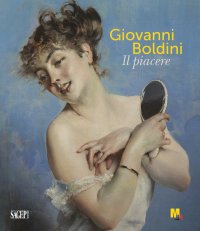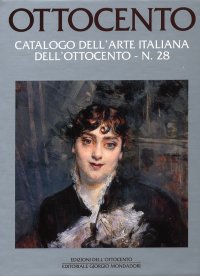Giovanni Boldini. Il Piacere
Rovereto, Mart, November 14, 2020 - February 28, 2021.
Edited by Beatrice Avanzi and Tiziano Panconi.
Genova, 2020; paperback, pp. 368, col. ill., col. plates, cm 24x28.
cover price: € 54.00
|
Books included in the offer:
Giovanni Boldini. Il Piacere
Rovereto, Mart, November 14, 2020 - February 28, 2021.
Edited by Beatrice Avanzi and Tiziano Panconi.
Genova, 2020; paperback, pp. 368, col. ill., col. plates, cm 24x28.
FREE (cover price: € 54.00)
Ottocento. Catalogo dell'Arte Italiana dell'Ottocento. Vol. 30
Milano, 2001; paperback, pp. 495, b/w ill., col. plates, cm 22x30,5.
FREE (cover price: € 40.00)
Ottocento. Catalogo dell'arte italiana dell'Ottocento. VOL. 28
Milano, 1999; bound, pp. 800, col. plates, cm 22x30.
FREE (cover price: € 77.47)
Built Ideas. Form, space and meaning
Salihbegovic Amra
Accademia University Press
Torino, 2099; paperback, pp. 300, cm 12x24.
series: Arti Architettura Città. Studi, Temi, Ricerche
EAN13: 9791255000419
Subject: Essays (Art or Architecture),Urbanism
Languages: 
Weight: 0.65 kg











